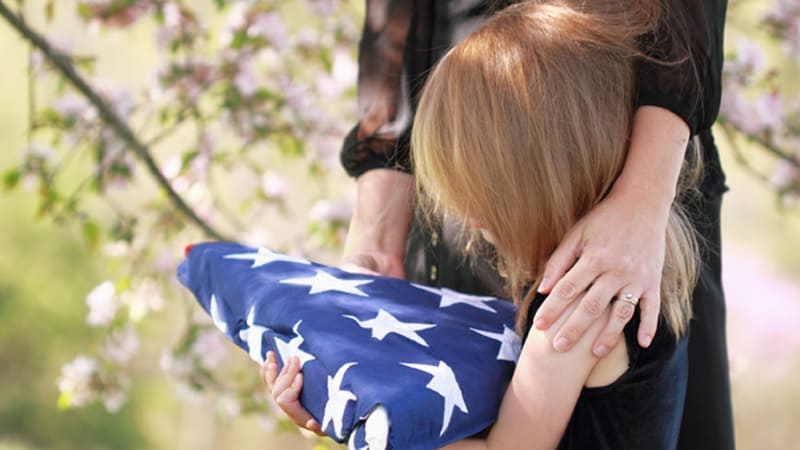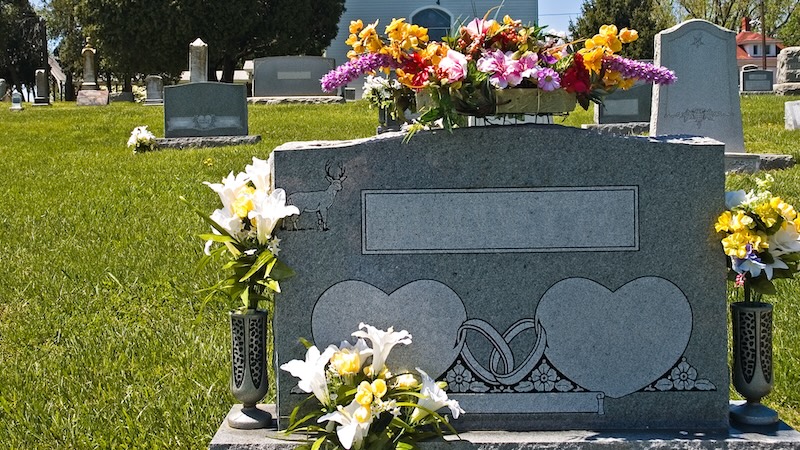Saying Goodbye to a WWII Veteran
Watching out for John

Barb took the little wooden box containing John’s ashes onto her lap and whispered a few words to it. I couldn’t hear what she said from across the room, but I could see a tear or two fall as she spoke.
Then she handed the box over to the funeral director there in the family room at Arlington National Cemetery, saying somewhat apologetically, “There should be tears at everyone’s funeral, and I’m here to cry for John.”
John was a longtime neighbor who lived at the other end of the block from us for about 20 years before moving into a nearby nursing home for another 10 or so. He had no close relatives, and none at all in the state. By the time he died March a year ago, he was totally blind and a month away from his 95th birthday. For the last decade of his life, Barb had been his main help and support. She paid his bills, took him to all his doctor visits, shopped for all his needs, took him to lunch, listened to his stories. Sometimes she said almost dismissively that John was her hobby; other times she said that if her own father were alive and alone, she’d hope someone would look out for him.
I wrote about John a couple of years ago, sharing some stories of his WWII experiences at the Battle of the Bulge. He was in the military for over 20 years before he retired. He always hoped to be buried at Arlington, and Barb was determined that he would be.
There were a lot of forms and paperwork involved, a lot of phone calls, faxing of documents, exchanges with the Department of Defense, things to get notarized, records to unearth and people to deal with. It took almost a year to arrange and get a burial date. Meanwhile, John waited on our living room mantle, and every morning Barb would say, “Good morning, John.”
A FITTING FAREWELL
A few weeks ago, the two of us drove his ashes up to D.C., arriving a day early so we would be sure to be in place. It was a good thing we did because, although the burial, our hotel and our carefully laid-out route were all in Virginia, we somehow ended up lost in downtown Washington, D.C., twice – the second time almost making us late for the scheduled burial.
All the effort was worth it. If you’ve never been to a burial at Arlington and have the chance to do so, do so. It’s an amazing thing to see. John would have loved it. He had his own honor guard, decked out in dress uniforms, marching perfectly in step to assume possession of his ashes. From down the hill more soldiers offered a multigun salute. A live bugler played “Taps,” and John’s ashes were buried near the base of a lone tree, amid acres and acres of small white gravestones. The chaplain spoke of the sacrifices of those killed in war, those who brought the scars home with them, those who served in war or peace, ready to protect and defend. There was a prayer. It was over.
On the drive home, Barb recalled the night we took John to see a local performance of “South Pacific,” one free to any veteran of WWII. Because of his blindness, Barb led John into the row and to his seat, and I followed him in and sat on the other side.
Before the show began, someone on stage asked the WWII veterans to stand up, and when John did, the person on the other side of Barb gushed, “Oh, your husband was in WWII? How exciting!”
“Yes,” said Barb (who was probably still in her 60s at that point, to John’s 90 or so years), “and he’s my second husband. My first husband was killed in WWI.”
“Oh, I’m so sorry,” the lady replied.
John enjoyed that exchange almost as much as the play.
Randy Fitzgerald is the author of Flights of Fancy: Stories, Conversations and Life Travels with a Bemused Columnist and His Whimsical Wife, published this fall. He was a longtime public relations director at the University of Richmond and columnist for The Richmond News Leader and later the Richmond Times-Dispatch and taught modern American literature at Virginia Union University. Contact him at rfitzger@gmail.com.


